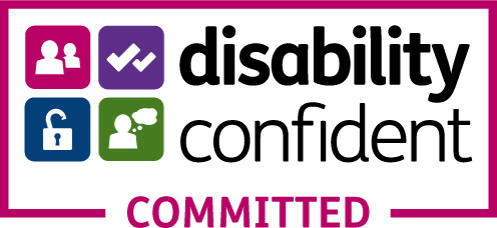Our top tips for a standout CV in 2020
Coronavirus is causing huge upheaval in the recruitment sector. Many people have been made redundant, some have decided to change roles due to a declining industry and others have seen their current roles alter too much and are ready for a fresh start.
Job-hunting can be fraught with stress, especially at the first hurdle – writing a compelling CV. What information do you prioritise? How do you wax lyrical about your myriad achievements without sounding self-aggrandising?
Your CV is the most contact you’ll have with many recruiters, so it’s crucial to a successful job application. Screening applicants and interviewing them is becoming more intuitive in our digital age but many HR professionals maintain that a conventional CV holds an important place in securing a job.
If you’re looking for the next opportunity to give you a challenge and uplift in lifestyle during these trying times, here are our top tips for a standout CV.
1. Back to basics
In your personal profile, lead with key attributes that someone looking at your CV will want to see. Citing your communication skills is a big plus, as well as your attention to detail, strong work ethic and ability to work efficiently and independently. If this space is getting a little word-y, find a way to incorporate these qualities when discussing your prior experience.
You’ll likely have a broad range of very specific skills, but don’t overlook core requirements like experience with Microsoft Office products, Google Suite, SAGE, Photoshop and so on, depending on the role. Don’t assume the recruiter will automatically know you have these skills.
2. Fools rush in
You might still be working while looking for something new or have home commitments, but try to put enough time into tailoring your CV for each role. Many companies now use software that has filters on incoming applications, so make sure you tweak your wording to match the terms used in the job advertisement and the company values for the best hopes of success.
Moreover, spellcheck your CV before sending it off and ensure all your grammar is correct. If possible, let someone else cast eyes over your CV too as we often miss things we’ve been staring at ourselves.
Perhaps most importantly of all, are your contact details up to date?
3. Rein it in
We’re sure that you have a glittering personality, but resist the urge to ‘set yourself apart’ with a quirky CV. In some industries (creative ones spring to mind), this can be appropriate, but we’d advise erring on the side of caution and maintaining a professional tone, no photos (really, ever) and no jargon that might alienate your reader.
Leave off your hobbies too. Personal achievements can seem a little pithy, but you may have something to include here if you do any relevant activities outside of your work life like speaking another language, First Aid training as part of St John’s Ambulance, UK driving licence holder etc.
4. Style it out
Use a template for your CV that will make it attractive and easy to ready. Most word processing packages have templates you can choose from and complete yourself. Beware when it comes to CVs that already have text populated – check that none of the holding text remains.
Accompany the template with a clean font, too. Helvetica and Calibri are the easiest to read. Try to stay away from Times New Roman as it’s becoming a little dated. Maintain the same font throughout the document.
5. …but don’t be gaudy
Stick to a consistent, uniform style and a simple colour scheme (preferably black and white unless you’re applying for a predominantly creative role).
Bear in mind that the recruiter may want to print your CV, so as a courtesy to them, ensure you use standard fonts they will definitely have installed on their system, and a colour scheme that will print well in black and white.
6. Consider the content
Someone reading your CV will only have a few minutes at most to spend on it, so using short bold statements will help them have a mental checklist to easily tick off. If you write a first draft including all the relevant information to your application, you can return to it later and set to work with the pruning shears, editing out the non-essentials.
A succinct, clear CV will have real impact, but just don’t arbitrarily remove essential information for the sake of a one-page CV. If you have vast and relevant experience or are applying for a complex role with many elements, don’t deny yourself that second page.
7. Address your COVID-19 work gap
If you have been furloughed or made redundant, address this. People who explain a work gap on their resume have a 60% increased chance of getting an interview than those who have not.
If you have a work gap, have you learned anything that shows you’re dedicated to upskilling yourself? Engaged in a webinar series, taken a course, etc? If it’s relevant, include it.
8. What has COVID-19 taught you?
If you have worked at any time during the pandemic, think about how you may have implemented new services to adapt to the COVID-19 changes and formulate that into a bullet that articulates your results. It shows readiness to jump into a role where there are likely strict guidelines in place that will require you to be adaptable.
Still not sure if your CV has what it takes? Why not contact us for some advice and guidance?
Our Awards and Accreditations













 03333 235 900
03333 235 900 Login / Register
Login / Register
